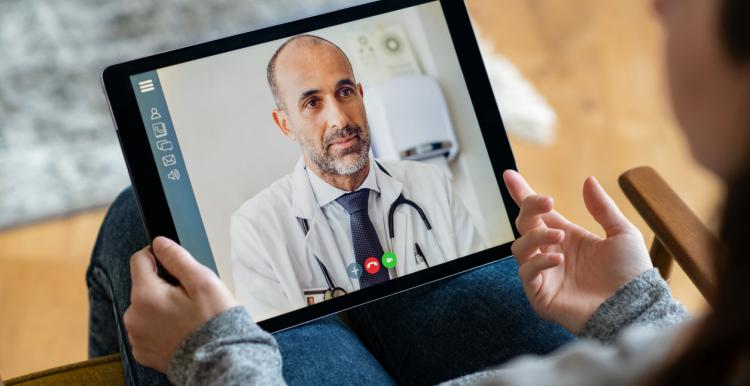Join our research project to explore who has been excluded by the digitalisation of healthcare

Over a few days in March, millions of NHS appointments were paused or moved online as the coronavirus crisis unfolded. We recognise that services had to adapt to new ways of working almost overnight, but this means they may not have fully considered the impact of these changes.
We want to explore, in partnership with local Healthwatch and GP services, how the shift to remote consultations has affected people who may find it more challenging to access care remotely or virtually. We are seeking support from:
- local Healthwatch to conduct engagement with patients and professionals.
- GP practices and Primary Care Networks who want to register their interest in taking part.
What will the project look at?
We will be looking at people’s experiences of primary care, given that these are the most common types of appointments which the greatest number of people will experience regularly.
This project will focus on people from groups that previous research has identified as being at greater risk of digital exclusion – those from areas of social deprivation, especially people:
- Aged 65 years or older;
- With disabilities - especially people with sensory impairments, learning disabilities, or dexterity/mobility issues; and
- With language barriers - whose first language isn’t English.
We want to understand who might be getting left behind by the rapid transition to remote GP consultation. We also want to know:
- How peoples interaction with primary care services has changed alongside the shift to digital service delivery?
- What the potential equalities and access issues around digital appointments are? and,
- What changes and improvements could be made to address these?
How can Healthwatch get involved?
We are looking for five local Healthwatch services to carry out interviews with both staff and patients. This work will need to be carried out in partnership with a local GP practice or Primary Care Network (PCN). We are particularly keen for local Healthwatch to partner with GP practices or PCNs that serve local populations affected by social deprivation.
The patients interviewed should be people from the three groups which our research has identified are at greater risk of digital exclusion; there should be at least 15 patient participants in total; this must include five people per target group.
For the third group, people with language barriers, local Healthwatch should identify a non-English language which is widely spoken in their area and use a translator to help support the interviews.
To support this work, participating local Healthwatch will receive a grant in two parts:
- £5,000 to carry out the work; and
- £1,000 for a translator and/or to cover translation costs.
How can primary care professionals get involved?
If you represent a GP practice or Primary Care Network and are interested in taking part in this research, please register your interest by completing our short form.
How should local Healthwatch apply?
- Download the project brief which sets out further information about the application and questions you will need to answer in your proposal.
- Find out which local areas have high levels of social deprivation
- Partner up with your local GP or PCN
- Write your proposal outlining in no more than 500 words how you would fulfil the project brief in your area.
- Submit your proposal by the 25 September 2020 by emailing research@healthwatch.co.uk
Download the project proposal
Find out more about the project, the work involved and what to cover in your proposal.
Got a question?
If you have a question, please contact our research team or our Senior Policy Analyst Urte Macikene.
